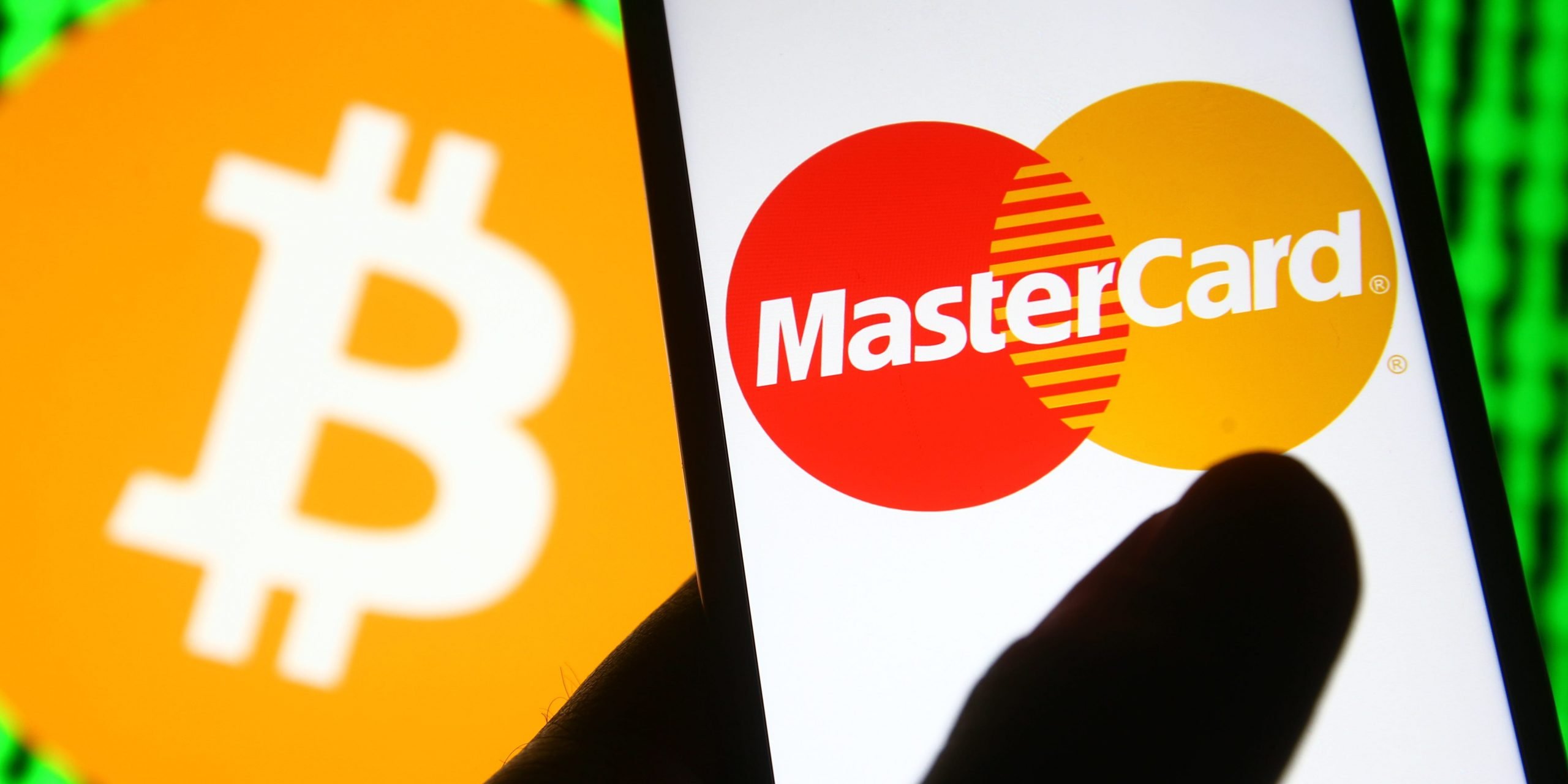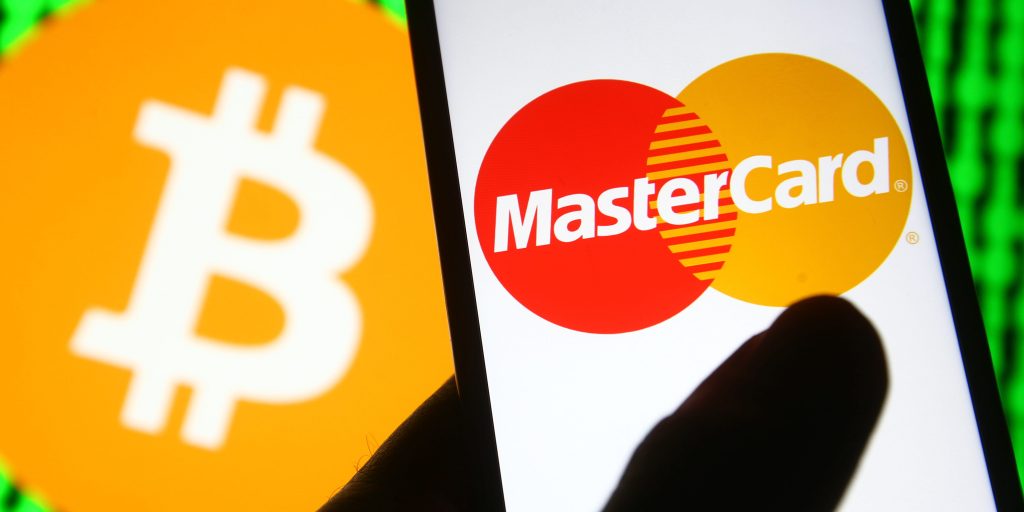
- Mastercard has launched crypto-linked payments cards that will allow holders to instantly convert their digital assets into fiat.
- The cards seek to remove barriers between merchants who do not accept digital assets and customers who want to pay in crypto.
- The partnership is with digital asset providers Amber Group, Bitkub, and CoinJar.
- Sign up here for our daily newsletter, 10 Things Before the Opening Bell.
Mastercard has launched cryptocurrency-linked payments cards in the Asia-Pacific region that will allow holders to instantly convert their digital assets into fiat currency for the first time, the company announced on Monday.
The cards seek to remove any barrier between merchants who do not accept digital assets as payment and customers who want to pay in crypto.
The partnership with Hong Kong's Amber Group, Thailand's Bitkub, and Australia's CoinJar will allow consumers and businesses in the region to apply for crypto-linked credit, debit, or pre-paid cards, which can be spent anywhere Mastercard is accepted.
The three firms will also join Mastercard's global Crypto Card Program to become the first Asia Pacific-based digital asset service providers on the roster. The program is aimed at making crypto transactions as seamless as possible.
The launch comes as the total market capitalization for digital assets just ballooned to $3 trillion for the first time on record, roughly the size of the entire UK economy.
Data from the Mastercard New Payments Index revealed that 45% of those surveyed in the Asia-Pacific region are likely to consider using crypto next year - a 12% jump from the previous year. The rate is also slightly higher than the global average of 40%.
Mastercard has been among the companies at the forefront of digital-asset integration. In July, the company upgraded its crypto card to allow customers to use stablecoins to make purchases. And in October, it partnered with digital asset platform Bakkt to enable consumers to buy, sell, and hold digital assets through custodial wallets.
Mastercard has also previously committed to helping central banks shape and develop their own digital currencies, which are digital tokens like cryptocurrencies but are not decentralized.

